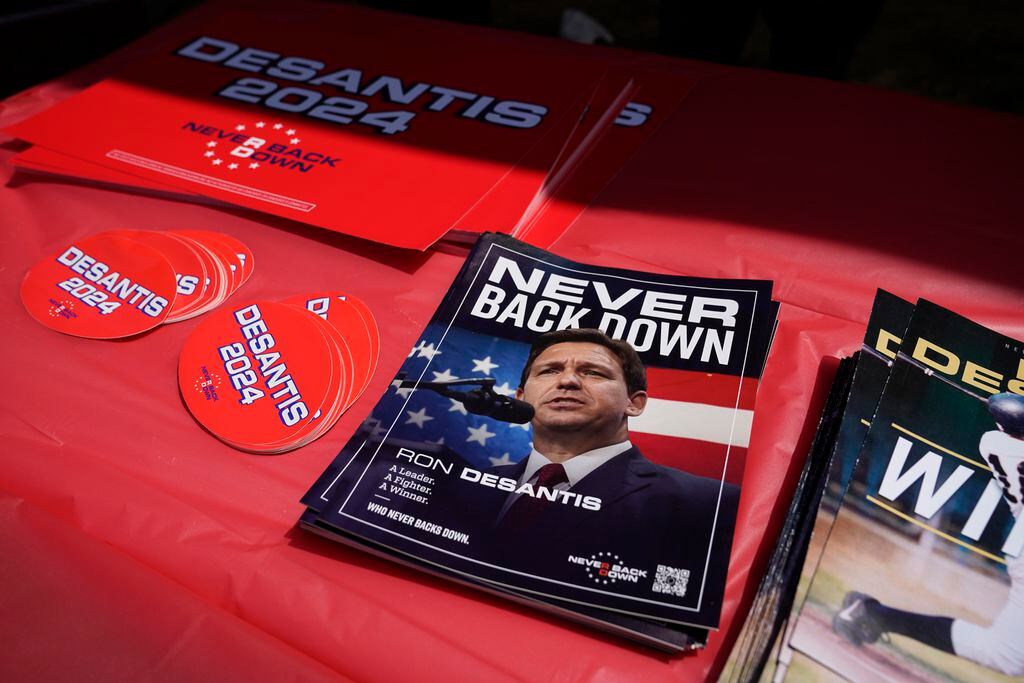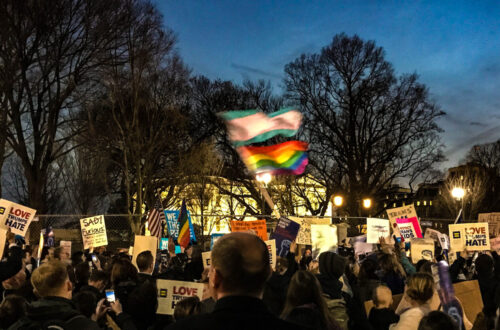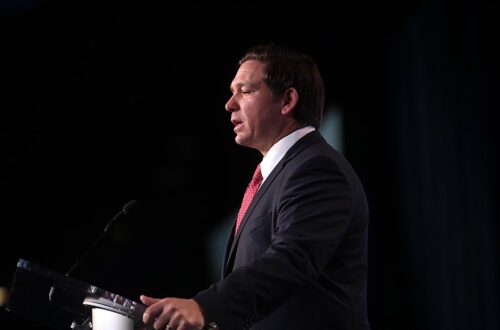Gov. Ron DeSantis began his presidential campaign seven months ago, on May 24, 2023, investing in a nearly $300 million campaign plan. Oscillating between success and turmoil, DeSantis faces the upcoming Republican primary debates in Iowa on Jan. 10 and New Hampshire on Jan. 18 and Jan. 24, without the financial support of his main super PAC, an independent-expenditure political action committee, Never Back Down. The constituency remains questioning the viability of a positive turnover for DeSantis.
Never Back Down reportedly yielded $2.5 million in advertisement reservations to a new Florida non-profit, Fight Right, as a new voter outreach operation focusing solely on ground initiatives. It also canceled all advertisements in Iowa and New Hampshire.
These two states are the final, early nominating states GOP candidates will visit before voting begins. Never Back Down is the top-spender among the GOP presidential primary candidates. It has also funded several of DeSantis’ advertisements and travel initiatives.
As these shifts occur in the late stages, the question is, will Never Back Down’s decision to change from advertisement spaces to ground initiatives make or break DeSantis’ chances for the presidency?
NBD Chairman Scott Wagner believes it is a “shift that would allow Never Back Down to focus on a core mission of grass-roots activities.”
The operation entails door-knocking efforts that spread positive information about DeSantis across the early-nominating states. As a super PAC, Never Back Down engages in “unregulated checks of unlimited size to pay for most of the business.”
Campaign efforts have taken diverse forms, such as volunteering and fundraising events. In late August, the group invested $100 million into training nearly 3,000 students to accrue support for DeSantis at Fort Benning.
Never Back Down is the “most impressive ground game in presidential election history,” according to the Fight Right website.
It is imperative, however, to understand the contexts behind Never Back Down’s decision to re-orient its resources. The onset of DeSantis’ campaign, “Great American Comeback: Never Back Down,” began with concerns after the release of a memo detailing the entirety of his strategies.
These circumstances reinforced two public perceptions of the DeSantis campaign: illusion and disillusionment.
The former is apparent by paralleling the uncovering of the memo with a transparent approach. DeSantis’ advisers argue that honesty with donors could “be a long-term way for Republicans to counter the clear advantage Democrats have built up.” It is also a measure taken by candidates to remain candid with the Federal Electoral Commission, an independent agency tasked with enforcing federal campaign finance laws.
The latter reveals the costs imposed on DeSantis.
A watchdog group called Campaign Legal Center has accused DeSantis four times of privately strategizing with Never Back Down to the FEC. A fifth complaint was also filed to the Florida Commission on Ethics for his travel activity. The FEC, however, has taken no further action after these complaints.
Andrew Romero, a communications director for the DeSantis campaign, believes “the FEC has made clear they won’t take action based upon unverified rumors.”
These accusations have also produced other spill-over effects. Wagner reportedly stated “following mismanagement and conduct issues, including numerous unauthorized leaks containing false information, senior officials were terminated.”
For example, NBD strategist Jeff Roe discussed infighting within Never Back Down as a motivation for his resignation.
“I cannot in good conscience stay affiliated with Never Back Down after the super PAC sent statements to The Washington Post suggesting the group fired officials connected to Roe’s firm over ‘mismanagement and conduct issues,’” Roe said.
DeSantis remains apolitical, as expected by federal law under the FEC. In a press release at Iowa, DeSantis clarified “this stuff just happens and it’s not in my purview.”
Since the change, Fight Right spent $1.7 million, and Never Back Down has yet to spend anything. Another super PAC, Good Fight, with no definite ties to these previous groups, appeared in Iowa to support DeSantis through television advertisements.
DeSantis no longer has the complete financial leverage provided by Never Back Down for these decisive primaries. The unsteady seven-month course of DeSantis’ campaign with his allies may also compromise a favorable perception.
Ashton Albright, a 19-year-old mechanic and welder, has been a Florida resident his entire life. He believes DeSantis’ relationship with super PACs such as Never Back Down is complicated.
“It’s going to be a harder time campaigning because he is relying on them,” he said.
The shift from ground initiatives to ad spaces may be risky ─ every voter has preferences. These changes have occurred in addition to internal conflicts and accusations of illegal coordination.
“They should get it together and focus on what’s better instead of arguing with each other over what they think,” he said.
Other GOP candidates, like UN Ambassador Nikki Haley, are following closely behind DeSantis with favorable numbers in the polls. Former US President Donald Trump holds a strong lead, producing uncertainty.
“It would be hard but it could be possible. I think he would be a good president but I prefer him as a governor for Florida,” he said.
The decision over which GOP candidate moves forward to the national convention will be decided after Jan. 24.
Featured image: Never Back Down and DeSantis Merchandise. Unmodified photo by Wikimedia Commons used under a Creative Commons license (bit.ly/4aBwQ2P).
Check out other recent articles from the Florida Political Review here.





